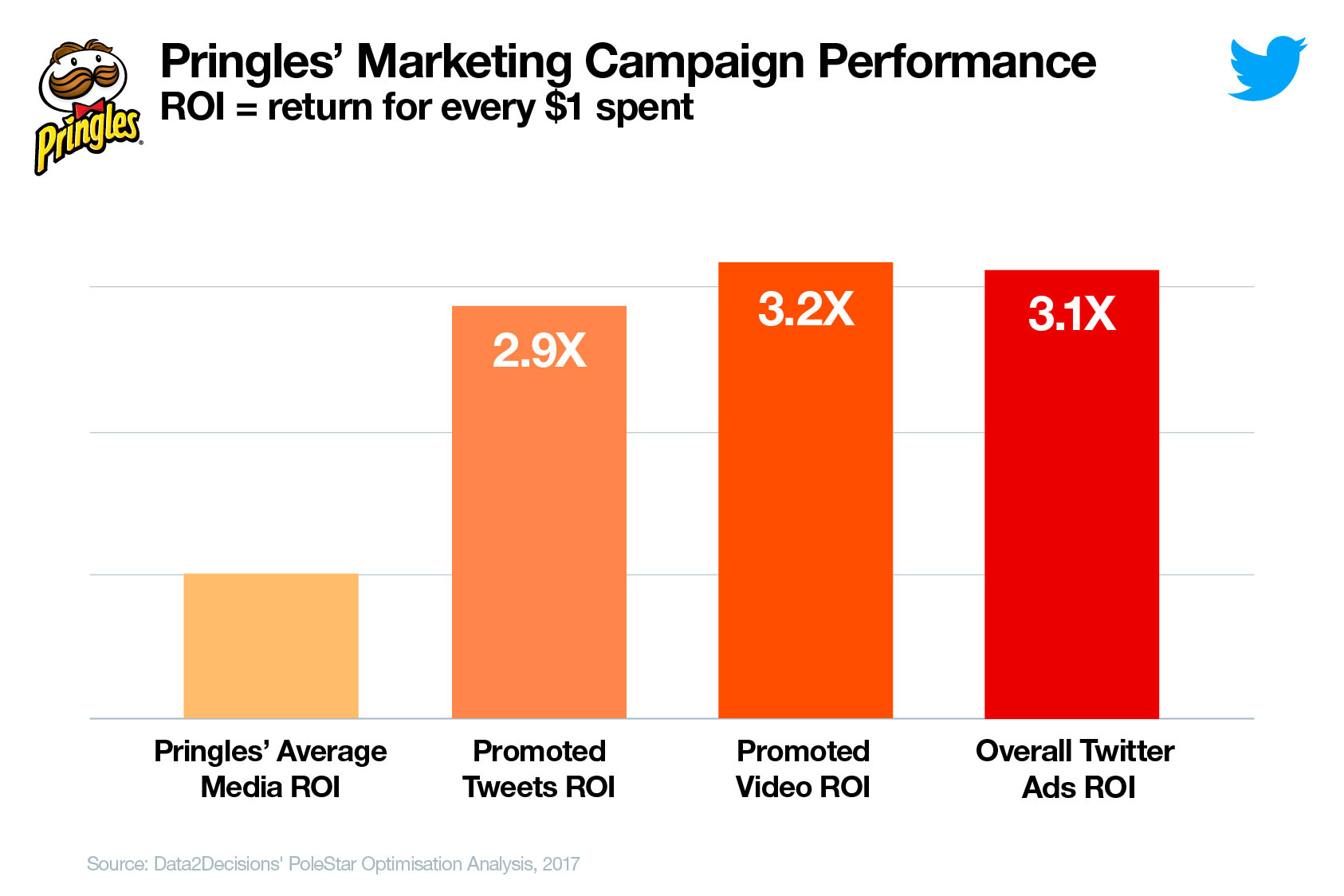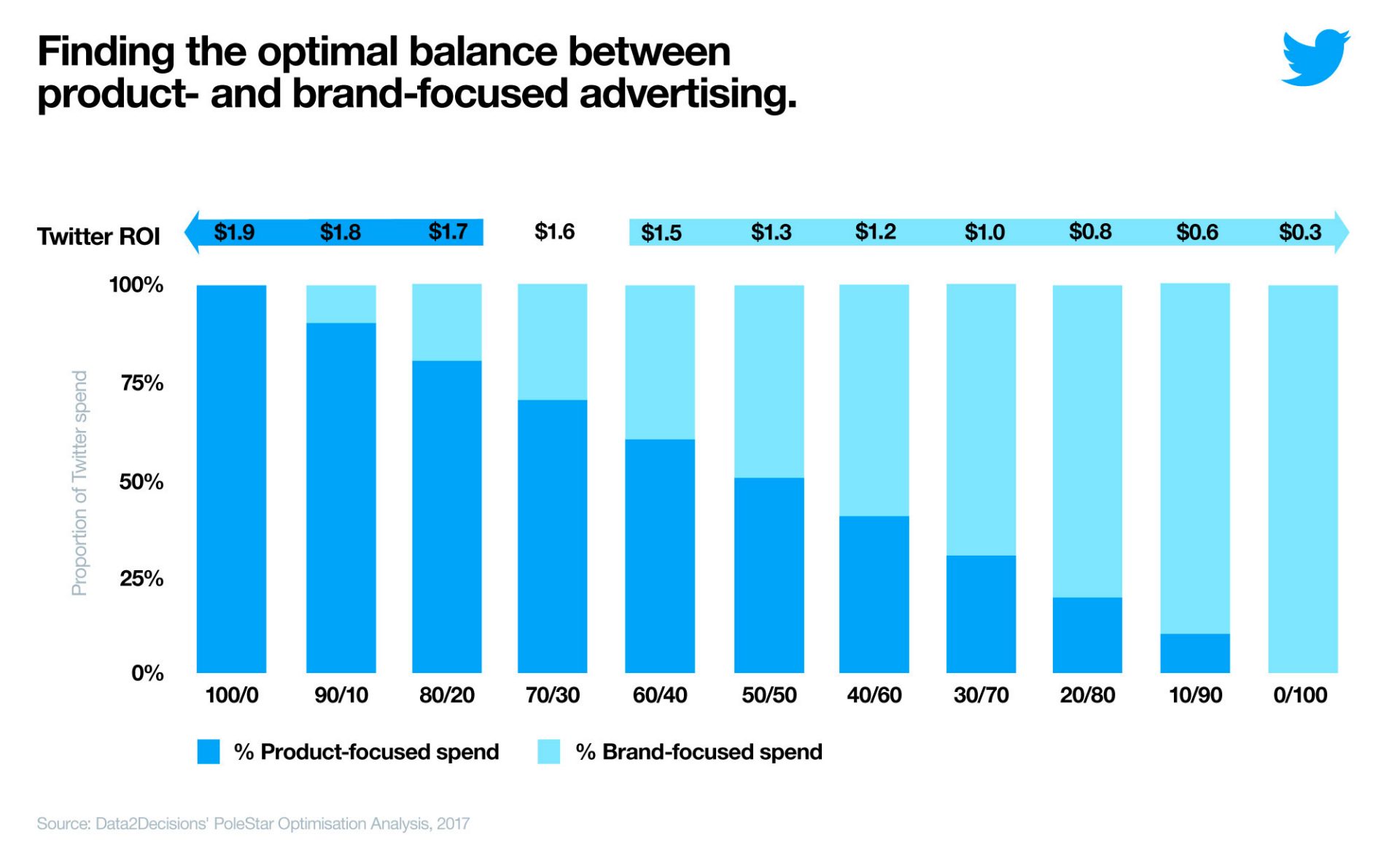Research
Study shows average Twitter Ads ROI is 40% higher than other channels

Independent research shows Twitter marketing campaigns deliver substantially higher ROI and video can be particularly effective.
Pouring money into marketing can often feel like an act of faith. Your gut tells you when a campaign is working, but the metrics to prove that are sometimes a little fuzzy. Marketers are often skeptical about the claims made by media outlets, and rightly so.
At Twitter, we wanted to get our hands on real numbers. How effective are Twitter marketing campaigns? Do video ads really drive sales? What's the right mix of product and brand marketing?
To find out, we worked with the marketing and communications network Dentsu Aegis Network (@DentsuAegis) (DAN), specifically its global media agency Carat Global (@CaratGlobal), and marketing effectiveness agency Data2Decisions (@globald2d) (D2D). D2D conducted a series of Marketing Mix Modeling (MMM)¹ studies covering two years of Twitter advertising for four of DAN’s clients in three markets: two major consumer packaged goods companies, a leading adult beverage maker, and a global athletic fashion company.
The results were pretty dramatic.
Across the four studies, the average Twitter Ads ROI is 40% higher than the average media ROI for other channels. The studies also found that Twitter’s Promoted Video ad format can be up to 20% more effective in driving sales than other Twitter ad formats, and that product-focused advertising on Twitter drives the highest short-term ROI.
1. Twitter Ads consistently work.
For every dollar spent on Twitter ad campaigns, the four brands in the study averaged a return of $2.70; an average ROI nearly 40% higher than the average ROI across all other media investments.
“In our work we often see a wide range of ROIs for different digital channels, with performance depending on a number of different factors such as strength of creative, campaign strategy, investment levels, and so forth. It was really interesting to see the Twitter ROI perform so consistently well across these four studies, both compared to the other ROIs we measured for these brands but also compared to the benchmarks from our database of results from other studies," says Paul Dyson, Founder, Data2Decisions
2. Twitter Video delivers results.
The studies also found that Promoted Video can be particularly effective at driving ROI for marketers. For example, Pringles (Kellogg’s) in the UK experienced a stunning return that was 3X higher than their average media ROI.

Overall, Promoted Video proved up to 20% better at driving sales than other Twitter ad formats.
We are excited to see the high ROI driven by Twitter — which will remain one of our key digital channels in the UK.
3. Product focus is key, but don't forget brand equity.
D2D also ran a simulation with one brand to determine whether product-focused Twitter campaigns deliver a significantly greater ROI than brand-focused Twitter campaigns. The result: product-only campaigns on Twitter delivered a short-term sales ROI of nearly $2, versus around 30 cents for brand-only marketing on Twitter.
However, purely product-focused marketing can backfire over the long term, as brand equity declines over time. The optimal balance between product-focused and brand-focused advertising on Twitter will depend on the strategic objectives of each brand, but in this case D2D’s analysis showed that maintaining a balance of 70% product to 30% brand would deliver short-term ROI without losing long-term brand equity.

Brand-focused messaging:
Product-focused messaging:
4. More investment = greater return.
In addition, D2D forecasted the impact of increased Twitter spend on ROI. The analysis found that, on average, brands could benefit by increasing their investment in Twitter campaigns by a factor of five or more. It also found marketing programs running Twitter campaigns over a period of several weeks were more effective than one-off tentpole campaigns.
At Carat, we’ve been partnering closely with Twitter to help our clients understand the value of their video ad investments on the platform, compared to other channels. The ROI data used is a crucial data point to inform sharper decisions for our clients and in this case, increase investments in Twitter's video ads.
Bottom line: Twitter can be a great driver of ROI for marketers. And the potential upside is even bigger: brands are not even close to the point of diminishing returns.
That's something agencies and brands should keep top of mind during 2018 budget planning.
Methodology
¹ Marketing mix modeling uses statistics to calculate the impact of marketing activities on business outcomes, taking into account other influences at the same time. Each study aims to quantify the impact of Twitter on brand sales, whilst controlling for all other sales influences. Analysis covers marketing activity for each brand across a two-year period between 2014 and 2016. Brand-focused content is defined as activity designed to change the audience’s perception of a brand — typically fewer products featured in content, with calls to action and sales messages.